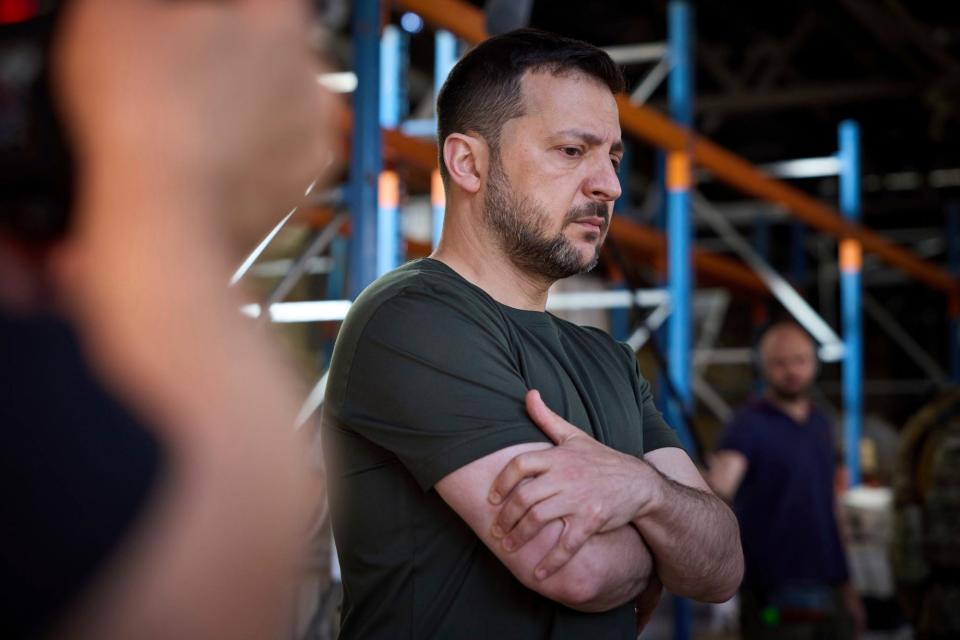Russia started new offensive early and with too few soldiers, as it tried to get ahead of US aid to Ukraine, experts say
Russia started its latest offensive prematurely and that "undermined" its success, experts said.
The Institute for the Study of War said it started its Kharkiv attack with an "understrength force."
Russia was trying to "establish a foothold before the arrival of resumed US military aid," it said.
Russia began its latest offensive in northern Ukraine too early and without enough soldiers because it wanted to get ahead of Western aid heading to Ukraine, experts said.
The Washington DC-based think tank the Institute for the Study of War said over the weekend that "Russian forces likely launched the offensive operation in northern Kharkiv Oblast earlier than intended with an understrength force hoping to establish a foothold before the arrival of resumed US military aid to the front made that task more difficult."
Congress voted to resume aid for Ukraine last month, after Republicans stalled for six months.
The $61 billion package could have a major impact on the battlefield.
Russia started its new offensive in Kharkiv, in northeast Ukraine, earlier this month.
The ISW said Russia was seemingly able to surprise Ukraine when it started the offensive, and made some gains in areas that Ukrainian officials said were not as well defended.
But, it added, "the likely premature start of Russian offensive operations appears to have undermined Russian success in northern Kharkiv Oblast."
The ISW said that Ukraine has subsequently boosted its defenses, so Russia's forces "have likely expended their tactical opportunity to make relatively rapid gains against lightly-held positions in this area."

Ukraine said earlier this month that it had slowed Russia's attack and that Russia had advanced no more than six miles into Ukrainian territory.
The ISW said that Russia seems to be trying to bring its Northern Grouping of Forces up to its planned strength before increasing operations in the region.
Ukrainian sources said this could mean up to 70,000 men, compared to about 35,000 at the start of the offensive.
But the ISW warned the force, even at 70,000, "will lack the necessary manpower needed to conduct a successful operation to envelop, encircle, or seize Kharkiv City."
Some US artillery and other military assets have already started to arrive in Ukraine, but other equipment will take longer to reach the front lines.
In April, Ukrainian President Volodymyr Zelenskyy said Russia was firing 10 times more artillery than Ukraine, and had 30 times more aircraft.
Soldiers in Ukraine told BI that the shortages meant they had to ration ammunition and not go after some of the same types of targets they would have earlier in the war.
Russia has tried to take advantage of Ukraine's shortages, such as trying to get it to use up its air defense missiles.
Despite the ISW's assessment, the situation is fast-moving and fast-changing, and does not look entirely positive for Ukraine.
Ukraine still has a major manpower and resource disadvantage compared to the much larger Russia.
On Sunday, Russia said it had taken the village of Berestove in the northeast of Kharkiv, though the claim has not been confirmed.
Zelenskyy, meanwhile, said on Saturday that Russian forces have had an eight-to-one casualty ratio compared to Ukraine, and the ISW said Ukraine took back some territory near the city of Vovchansk in the region last week.
Read the original article on Business Insider


